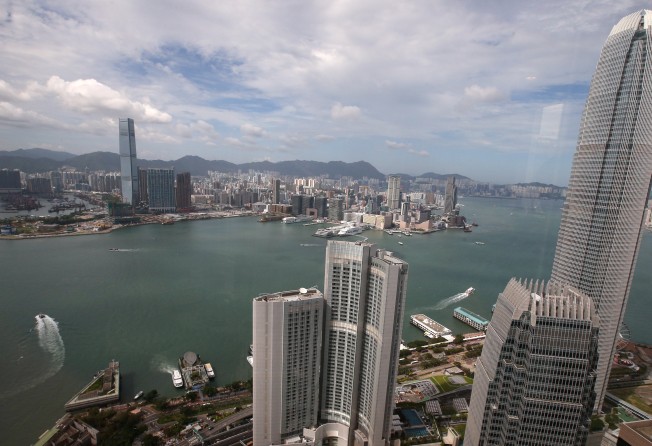Hong Kong must continue to nurture the pillars of competitiveness
- A survey shows that Hong Kong remains China’s most competitive city
- But there is much ground to be made up in integrated regional development with the mainland

Perceptions of a city’s competitiveness depend on benchmarks applied in various surveys. Outcomes can be determined by what factors are excluded as much as by those taken into account. As a result, for example, Hong Kong is no match for Shenzhen if the two cities are rated solely or mainly on the buzz benchmark of innovation and the environment. But going by a wider set of indicators of sustainable economic competitiveness, Hong Kong remains the gold standard for the country and a force to be reckoned with globally.
This emerges from the latest survey by the United Nations and the Chinese Academy of Social Sciences, in which researchers rated 1,007 cities around the world. Findings released at a Nanjing conference organised by the academy show that Hong Kong remains China’s most competitive city, but that there is much ground to be made up in integrated regional development with the mainland. The study concluded that the “Greater Bay Area” project, which aims to link Hong Kong with Macau and nine mainland cities in a technology and innovation hub to rival Silicon Valley, has far to go before matching the three major bay areas of the United States and Japan.
Ranked according to both economic and sustainable competitiveness, the top 20 per cent of cities overall included Hong Kong, Macau, Taipei and 37 mainland cities. Economic competitiveness weighs a city’s GDP growth against incremental global growth over five years, while sustainable competitiveness takes into account eight complementary elements, ranging from technology and innovation to infrastructure, the environment, institutional strength and economic vitality. Eleventh in economic strength, Hong Kong leapt seven places to sixth in sustainable competitiveness, finishing in the world’s top five for institutional environment, global connections and infrastructure, and losing to Shenzhen only for economic vitality and technology and innovation.
Given that it will be a long time before Hong Kong closes the technology and innovation gap with Shenzhen, the city must nurture these pillars of sustainable competitiveness. They will be instrumental to reaping the benefits of China’s continuing reform and opening up. Indeed, as the academy’s Professor Ni Pengfei says, improved connections with the mainland such as the high-speed rail link and the Hong Kong-Zhuhai-Macau Bridge will unlock more of the city’s potential. It was good to hear Chief Executive Carrie Lam Cheng Yuet-ngor tell a seminar organised by the Office of the Commissioner of the Ministry for Foreign Affairs in Hong Kong and the Better Hong Kong Foundation that the city is eager to play a bigger role in the country’s opening up as a contributor as well as a beneficiary. To that end sustainable broad-based competitiveness is of paramount importance. It is to be found at the heart of every vision advanced for Hong Kong.